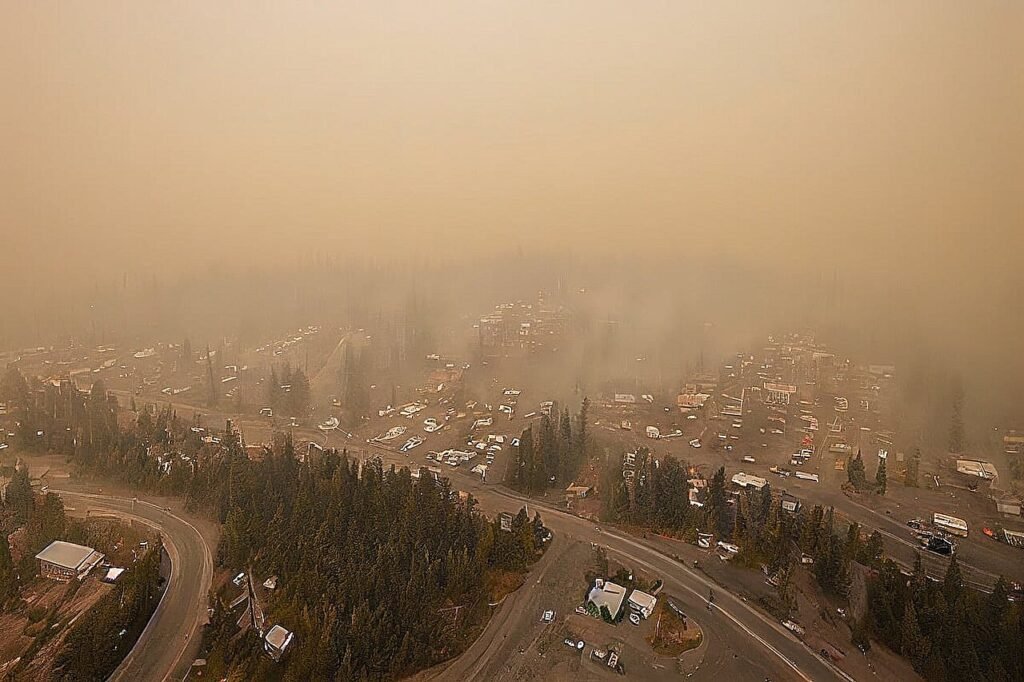Climate Change Causing More Deaths from Heat and Wildfire Smoke
A recent report has shed light on the alarming surge in deaths from heat and air pollution as climate change continues to accelerate. According to researchers from The Lancet Countdown on Health and Climate Change, the rate of heat-related deaths worldwide has increased by 23% since the 1990s, claiming approximately 546,000 lives each year. Additionally, a record 154,000 deaths were attributed to air pollution from wildfire smoke in 2024 alone, further emphasizing the devastating impact of climate change on public health.
The study also revealed that an estimated 2.5 million deaths annually can be linked to air pollution generated from the burning of fossil fuels such as gasoline and coal. This concerning trend has coincided with a concerning rollback on climate commitments by several governments, notably the United States, which has raised alarm bells among researchers.
Lead researcher Marina Romanello, the executive director of The Lancet Countdown, emphasized the urgent need to address the health risks posed by climate change. She highlighted the record-breaking threats from heatwaves, extreme weather events, and wildfire smoke, stressing the critical importance of ending our reliance on fossil fuels and implementing adaptive measures to mitigate the impact of climate change.
The report also highlighted the record-breaking temperatures observed in 2024, with the average global citizen experiencing an additional 16 health-threatening hot days due to climate change. In the United States, individuals faced an average of 14 heatwave days, with 10 of these events attributed to climate change. Furthermore, Americans suffered an estimated 11,500 deaths from wildfire smoke in 2024, marking a 49% increase from the previous decade.
Droughts and heatwaves have also exacerbated food insecurity, with approximately 123 million more people experiencing moderate to severe food shortages in 2023 compared to the global average between 1981 and 2010. The report highlighted that nearly a third of the U.S. landmass experienced extreme drought conditions annually from 2020 to 2024, underscoring the far-reaching consequences of climate change on agriculture and food production.
Despite these alarming findings, the study noted that the production of fossil fuels by major oil and gas companies continues to expand, further exacerbating the climate crisis. The top 100 oil and gas companies have increased their projected production, while the top 40 lenders to the fossil fuel sector invested a five-year high of $611 billion in 2024, indicating a concerning lack of commitment to sustainable practices.
In conclusion, the researchers warned that failure to address the root causes of climate change and reduce our reliance on fossil fuels could lead to overwhelming challenges for healthcare systems, infrastructure, and disaster response capacities. Urgent action is needed to curb greenhouse gas emissions and prioritize sustainable practices to safeguard the health and well-being of the global population.
This article is a summary of the key findings from The Lancet Countdown on Health and Climate Change report and underscores the critical need for decisive action to mitigate the impact of climate change on public health.
References:
– Stella M. Hartinger et al, The 2025 Lancet Countdown Latin America report: moving from promises to equitable climate action for a prosperous future, The Lancet Regional Health – Americas (2025). DOI: 10.1016/j.lana.2025.101276
Copyright © 2025 HealthDay. All rights reserved.


